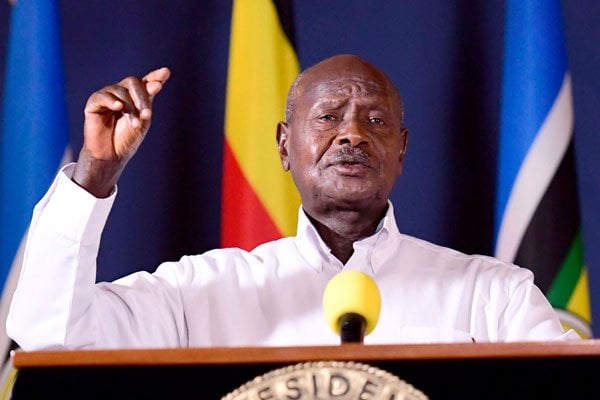Prime
The world must decarbonise, but Africa must urgently industrialise

Elison Karuhanga
What you need to know:
- The only thing we got from activism was delayed, expensive electricity at Bujagali.
The reality of energy poverty is felt deeply on this continent, where 600 million Africans have no access to electricity. NJ Ayuk, chairman of African Energy Chamber, recently pointed out that a kettle boiled twice a day in the UK uses four times as much electricity as an average African does in a year. With its one billion people, Africa uses less energy than Spain and even less than the 4.8m people of Alabama in the US.
International Energy Agency’s executive director Fatih Birol stated, “If we make a list of the top 500 things we need to do to be in line with our climate targets, what Africa does with its gas does not make that list.”
Lack of power means so many things. It means women giving birth in the dark, children who cannot study at night, and small businesses that cannot progress. As a matter of fact, while the world must urgently decarbonise, Africa must urgently industrialise.
It is also important to contextualise why some are suspicious of the NGO movement when it comes to their energy advocacy. In the late 1990s and in early 2000s, the World Bank was to lend Uganda approximately $215m to build a 200 MW hydropower dam at Bujagali. Government contracted AES Corporation. At that time, Uganda produced a little over 60 megawatts of electricity.
However, an environmental group that is focused on rivers, strongly opposed the project. They supported the filing of suits seeking injunctions, while persuading civil society actors and political leaders that this project was horrible for Uganda. As usual, their views were published in the international press. They targeted the World Bank and complained until the Bank established an independent inspection panel to investigate how bad more electricity would be for Uganda. The reasons for their opposition were similar to what we hear in respect of East African Crude Oil Pipe Line (EACOP).
They claimed the project benefitted large corporations at the expense of the people. That a dam at Bujagali would affect the hydrology of the River Nile, putting millions of people who rely on it for water at risk. They claimed the project was overpriced and that instead of electricity, Uganda should focus on tourism, as if tourists don’t need electricity. Uganda’s problem, they claimed, was not electricity, it was poverty. They also claimed that the project would displace 6,000 people and affect cultural rights on a sacred site.
After a lot of pressure, AES withdrew from the project and an NGO released a statement warning other interested investors. They said, “AES has lost $75m in the Bujagali adventure. We hope this sends a message to other power companies who might consider investing in the project.”
Years later, Bujagali was built at double the cost and had a high tariff, as a result of the delay. The 6,000 people were not displaced. Tourism grew from $90m to almost a billion-dollar industry today. Currently, the country is renegotiating the cost of power from Bujagali and putting new larger dams on the grid. After delaying Bujagali, they got on planes and flew to the Nam Theun 2 Dam in Laos. The only thing we got from the activism was delayed, expensive electricity.
Contrary to popular belief, the call to develop renewables is most welcome In Uganda. About 92 per cent of Uganda’s electricity is supplied by renewables. The bulk of our electricity comes from hydroelectric plants. Government has a renewable energy policy and a Uganda green growth development strategy. However, it is quite likely that as we develop renewables, we will see similar slacktivism against large scale solar or wind projects in Uganda.
These activists tend to frame the energy-discussion as if it only has simple dimensions. Theirs is a narrative of environmental protection versus corporate profits. What they don’t want to discuss is the reality; Uganda and Africa need energy to improve the quality of life for the people.
Elison Karuhanga is an advocate and partner at Kampala Associated Advocates
[email protected]




